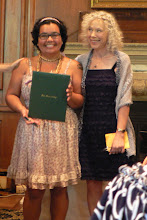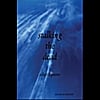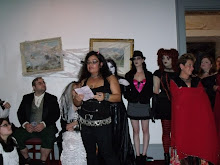i misjudged peterson and would the man were standing before me i would tell him myself. and humbly ask his forgiveness. i was utterly wrong. ignorant. stupefied by his successes and the production of a work so accessible to everyman that i could not see beyond it. a friend helped me to realize, just because i delight in king james english does not mean everyone else does. it is, in fact, a matter of preference. and i shall shut my mouth about it. i'll try not to cringe when i hear it. and i'll try to be gracious with those who adore it. i am, after all, a work in progress. "open during renovation" as it were. don't mind the scaffolding see, it is supposed to be there, holding up sagging beams and trusses. what a wreck i am, but then aren't we all.
my intent is to share a poem i just wrote. this moment. or that one actually. but let me share a passage from the peterson book i am reading. and a letter, or commission--as far as commissions go, this one is not so great, but it will suffice--i wrote this morning to the fine circle of poets who honor me with their presence. i humbly offer this commission to all artisans, whatever their field or medium.
hi there.
by way of introduction. in denver a story was read about a pastor. it occurred to me then, and i still believe it now (i'm coming to believe it more), that we are all pastors. we artists convey the truth of God to the people. while we may not hold the position or title pastor, that is merely window dressing. our actual function, as artists, is to convey the Lord to the world. prophetic in nature, sure. we are ministers all, of life. of fire. but the pastoral calling is something we abdicate to the titled professionals to our peril. a high calling indeed. higher than, perhaps, we realize. may it be our word for this coming year. that whatever task you find yourself fulfilling. oiling boots, tending patients or students, sweeping floors, that you might have the unction of God upon the work of your hands and the force of creation behind every word that forms in your spirit and comes forth onto the page. so be it, Lord.
here's the passage:
an excerpt from a book i'm reading: eugene peterson's "the contemplative pastor"
Apocalyptic Poet
"The apocalyptic pastor is a poet. St. John was the first major poet of the Christian church. He used words in new ways, making (poetes in Greek is maker) truth right before our eyes, fresh in our ears. The way a pastor uses the language is a critical element in the work. The Christian gospel is rooted in language: God spoke a creation into being; our Saviour was the Word made flesh. The poet is the person who uses words not primarily to convey information but to make a relationship, shape beauty, form truth. This is St. John's work; it is every pastor's work.
I do not mean that all pastors write poems or speak in rhyme, but that they treat words with reverence, stand in awe before not only the Word, but words, and realize that language itself partakes of the sacred.
If St. John's Revelation is not read as a poem, it is virtually incomprehensible, which, in fact, is why it is so often uncomprehended. St. John, playful with images and exuberant in metaphor, works his words into vast, rhythmic repetitions. The gospel has already been adequately proclaimed to these people to whom he is pastor; they have become Christians through preaching and teaching that originated with Peter and Paul, and was then passed on by canonical Gospel writers along with unnumbered deacons, elders, and martyrs. But there is more to St. John's work than making a cognitive connection with the sources. As pastor he re-speaks, re-visions the gospel so that his congregations experience the word, not mere words. To do that he must be a poet.
The pastor's task is to shape the praying imagination before the gospel. This revelation of God to us in Jesus is a fact so large and full of energy, and our capacities to believe and love and hope are so atrophied, that we need help to hear the words in their power, see the images in their energy.
Isn't it odd that pastors, who are responsible for interpreting the Scriptures, so much of which come in the form of poetry, have so little interest in poetry? It is a crippling defect and must be remedied. The Christian communities as a whole must rediscover poetry, and the pastors must lead them. Poetry is essential to pastoral vocation because poetry is original speech. The word is creative: it brings into being what was not there before--perception, relationship, belief. Out of the silent abyss a sound is formed: people hear what was not heard before and are changed by the sound from loneliness into love. Out of the blank abyss a picture is formed by means of metaphor: people see what they did not see before and are changed by the image from anonymity into love. Words create. God's word creates; our words can participate in the creation.
But poetry is not the kind of language that pastors are asked to use, except in quotation at funerals. Most pastoral work erodes poetry. The reason is obvious: people are not comfortable with the uncertainties and risks and travail of creativity. It takes too much time. There is too much obscurity. People are more comfortable with prose. They prefer explanations of Bible history and information on God. This is appealing to the pastor for we have a lot of information to hand out and are adept at explanations. After a few years of speaking in prose, we become prosaic.
Then a dose of apocalyptic stops us in mid-sentence: the power of the word to create faith, the force of imagination to resist the rationalism of evil, the necessity of shaping a people who speak and listen personally in worship and witness. The urgencies of apocalyptic shake us down to the roots of language, and we become poets: pay attention to core language, to personal language, to scriptural language.
Not all words create. Some merely communicate. They explain, report, describe, manage, inform, regulate. We live in an age obsessed with communication. Communication is good but a minor good. Knowing about things never has seemed to improve our lives a great deal. The pastoral task with words is not communication but communion—the healing and restoration and creation of love relationships between God and his fighting children and our fought-over creation. Poetry uses words in and for communion.
This is hard work and requires alertness. The language of our time is in terrible condition. It is used carelessly and cynically. Mostly it is a tool of propaganda, whether secular or religious. Every time badly used language is carried by pastors into prayers and preaching and direction, the word of God is cheapened. We cannot use bad means to a good end.
Words making truth, not just conveying it: liturgy and story and song and prayer are the work of pastors who are poets.
yes. be encouraged in your high calling, pastorpoetfriend.
suz.
pastorpoetfriend
raise up the word
high over the altar
break
___symbolic flesh
bless the cup
an offering
___poured out
for a friend
fellow sojourner
whose eyes across
___your lines
may be the only
___gospel
they ever see.
















1 comment:
Preach it sister, poet, friend. I think you've stepped under some showers of annointing!
c van gorkom
Post a Comment